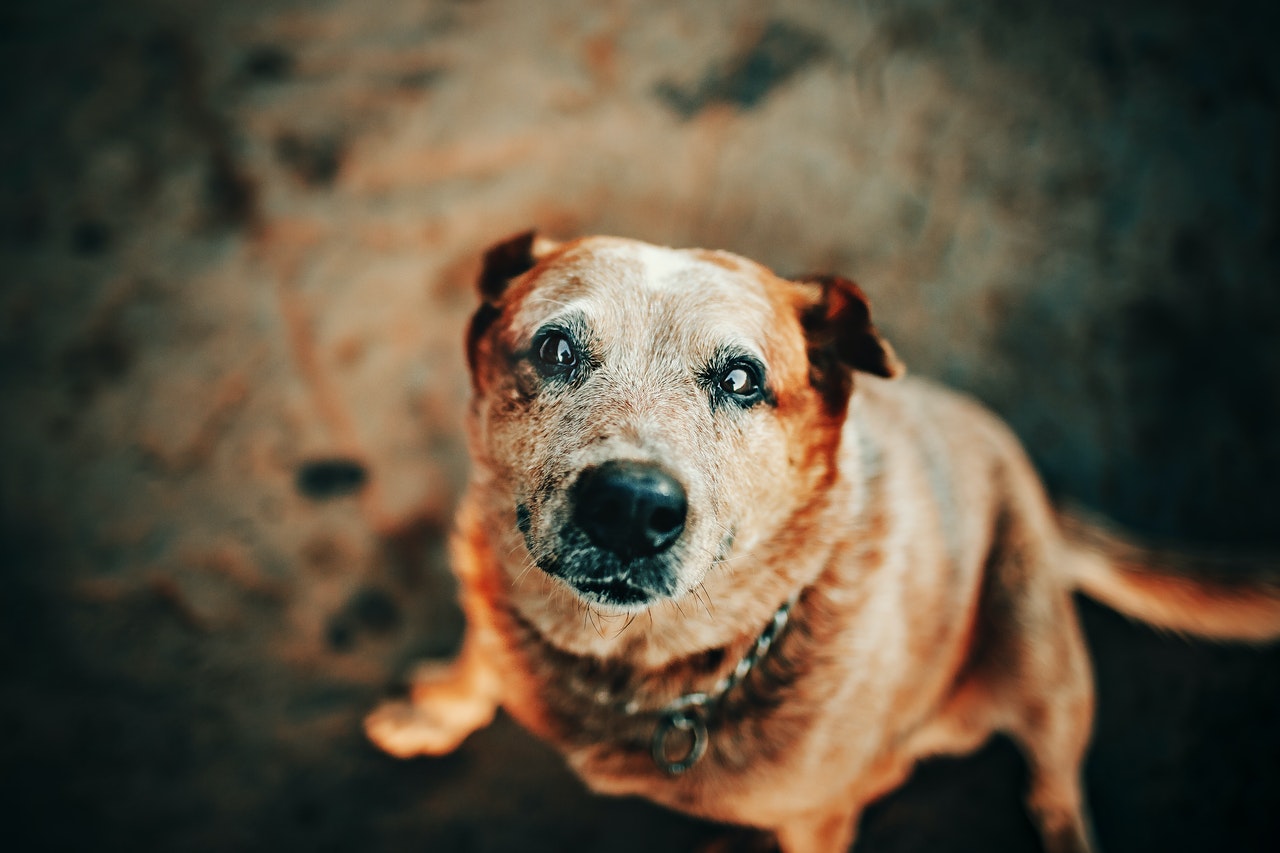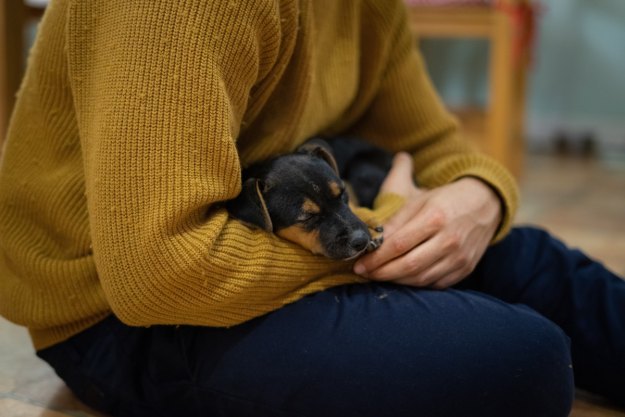Dogs are called “man’s best friend” for good reason. Whether your pup is an entertaining clown or a dignified protector, the bond between a pet parent and their fur baby is unbreakable. Unfortunately, dogs aren’t immortal — or even immune to one of the most insidious diseases: cancer. Early detection is the key to a good prognosis, so we’ve consulted the experts and compiled a list of the eight most common cancer symptoms in dogs. The more knowledgeable you are about the warning signs, the more likely you’ll realize something is wrong with your pup before it’s too late. Here’s what to look out for.

What is the most common cancer in dogs?
According to cancer.gov, breast cancer is the most common type in humans. But it differs for our canine companions. The most common types of cancer in dogs are:
Hemangiosarcoma
Often found in the heart and spleen, hemangiosarcoma typically remains undetected until the disease is in an advanced stage. Unfortunately, this is also one of the most rapidly advancing types of cancer, which forms blood-filled tumors.
Lymphoma
Canine lymphoma is almost identical to non-Hodgkin’s lymphoma in humans. (The same chemotherapy drugs are used to treat both humans and canine lymphoma sufferers.) This form of cancer attacks lymphocytes and lymphoid tissue, which is typically found in bone marrow, the spleen, the liver, and the lymph nodes.
Melanoma
An aggressive form of cancer that frequently metastasizes to the lymph nodes and lungs, melanoma is also the most common type of oral cancer in dogs.
Osteosarcoma
While osteosarcoma — commonly called bone cancer — can impact any dog breed, it’s more common in large ones. Unfortunately, osteosarcoma is highly aggressive and painful as cancerous tumors begin to replace a dog’s bones.
What does the start of cancer look like in dogs?
Cancer has many forms, and not all types of cancer have drastic symptoms until it’s too late. We recommend regular cancer screenings if your dog is considered high-risk. Bernese mountain dogs, boxers, German shepherds, golden retrievers, and rottweilers all have an extremely high risk of developing cancer. With that being said, any breed can develop cancer at any age, so you should perform regular wellness checks at home. Here’s are the eight symptoms you should look out for.
#1: Lumps under the skin
While some forms of cancer may leave visible lumps and bumps around your dog’s eyes, ears, nose, or mouth, not all cancerous tumors are visible to the naked eye. Try feeling for any abnormal swelling the next time you cuddle your dog. It could be nothing, but it could also be a tumor.
#2: Sudden changes in urination and defecation
If your pup suddenly begins to experience issues with urination and/or defecation, it could be a sign he has cancer. Fur babies suffering from urinary cancer may have to urinate more than usual, which could lead to accidents indoors.

#3: Limping or lameness
Sometimes our fur babies over-exert themselves during playtime and feel sore the next day. But if your pooch experiences prolonged limping or lameness, it’s time to see a vet. Arthritis is a likely culprit, especially in senior dogs, but so is bone cancer.
#4: Coughing, wheezing, or difficulty breathing
Just like humans, dogs are susceptible to cancerous lung tumors. Difficulty breathing, especially if your dog hasn’t been active, is always something that should be addressed by a veterinarian immediately.
#5: Changes in food or water consumption
Cancer makes dogs feel unwell, which may impact their interest in food or water. Conversely, certain forms of cancer — specifically those with pituitary or adrenal gland tumors — may cause a sudden increase in food and water consumption.
#6: Lethargy
While some pups enjoy lazing about all day, it’s cause for concern when a normally active dog suddenly displays symptoms of fatigue. It’s possible your pup is just having a sleepy day, but if your dog’s lethargy is accompanied by additional symptoms, it could be an emergency.
#7: Gastrointestinal distress
Although gastrointestinal issues aren’t what most people think of when they hear the word “cancer,” persistent or severe nausea, vomiting, and diarrhea are sometimes indicative of this disease.
#8: Discharge from any orifice
A runny nose could be a symptom of a cold, but there’s also a chance your pooch has malignant nasal tumors. We always recommend taking your dog in for a checkup if he has unusual discharge from any orifice.
How long can dogs live with cancer?
As much as we would love to give you a concrete answer, we can’t. The honest answer is: it depends. If a slow-spreading form of cancer is caught early, your beloved fur baby could live for several more years. However, if your dog has a highly aggressive form of cancer and is diagnosed when the disease is already in an advanced stage, then you may need to prepare for the worst in a matter of weeks.

Pet parents, just like our furry family members, are all different. We have different jobs, different interests, and different lives. But we all have one thing in common: we wish our fur babies lived forever. Sadly, that’s not the case, but there are things you can do to make sure your beloved pup lives the best possible life. Keep a watchful eye on your dog’s health, take him to the vet for yearly checkups, and make sure your dog knows how much you love him. (No, really. They can tell if we truly love them.)
Editors' Recommendations
- 5 surefire ways to keep your dog off your bed and get a good night’s sleep
- Taking your dog’s collar off at night: Safe move or safety risk?
- How to tell if your older dog’s health decline means the end is near
- My dog is shaking and acting weird – should I worry?
- Xylitol is dangerous for dogs: 10 surprising products that contain it as a hidden ingredient




